Alison Taylor with Sara Sanabria
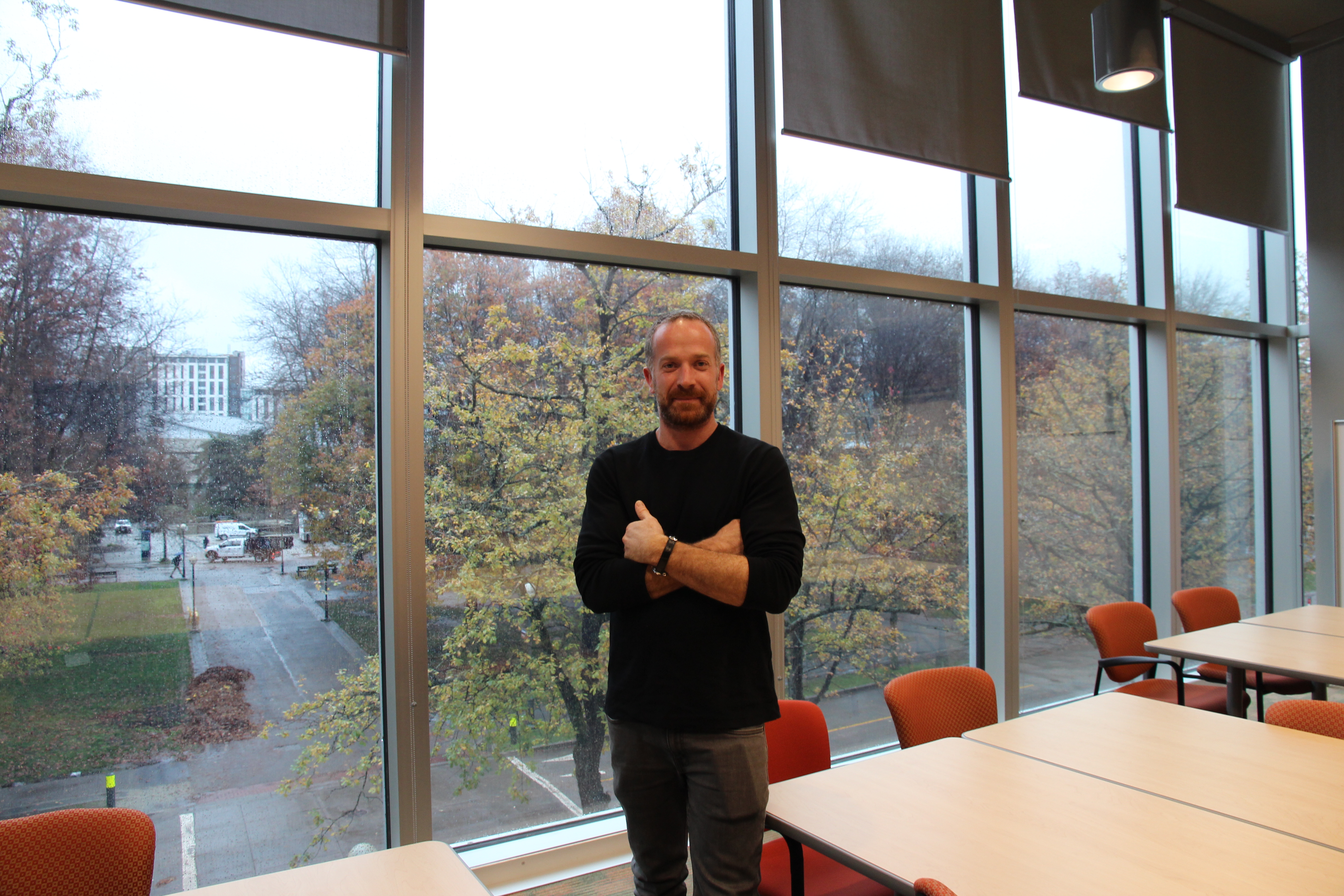
I first heard about Art Studies (ASTU) 100 this past spring from Heather Latimer,[1] a Lecturer in the Coordinated Arts Program (CAP) at UBC. CAP is a first year multidisciplinary program in Arts. In the Law and Society stream[2] of the CAP, students take courses that require them to think about how various aspects of society have shaped law— for example, colonization, globalization, and social movements. They also engage with community in various activities.
A key topic in Art Studies 100 is “Dilemmas of Justice.” This is even more topical in light of current media attention to events such as the migrant caravan marching from countries in Latin America to the US border.
We caught up with this year’s lead instructor for the course, Evan Mauro, in between grading assignments. Evan was attracted to the CEL component because he, like Heather, has struggled over “how to teach social justice issues to first year students in ways that don’t diminish their complexity, but also don’t traumatize the students.” Mauro would like to have students acknowledge their privilege, while also encouraging them to think more carefully about the forms of institutional power that they participate in (as well as possible strategies for change).
Mauro is also keen on the idea of making multidisciplinarity socially relevant. Last week in his discussion of colonization, for example, Mauro talked with students about the concept of “terra nullius.” Students read an article by Sara Hunt (a geographer at UBC) about how historical policies have translated into increased vulnerability for Indigenous women today. In complement, next term they’ll be invited into the February 14thannual women’s memorial march, where they’ll get a “community based set of teachings.”
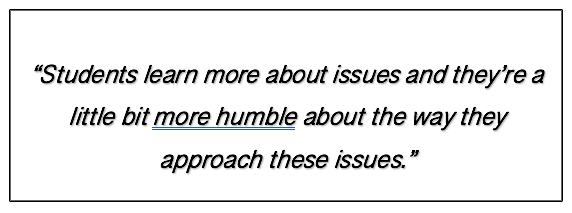
When we asked Evan what he sees as the benefits of involving first-year students in community engaged learning is, he replied: “It makes the experience students get at university much stronger. Students learn more about issues and they’re a little bit more humble about the way they approach these issues. Because they get to know that their expertise is not the same as the lived experience of people who are working through these issues on a day-to-day basis. That’s an important realization and it comes late for some of us (laugh). If we can get students to understand that in first year, that’s wonderful.”
Once they’ve gained some background on issues, students will participate in sessions with lawyers who work in social justice work next semester. One key partner is West Coast LEAF (Women’s Legal Education and Action Fund), a non-profit law firm. Their staff will provide models for new students of university graduates who are using their education for socially progressive ends.
Students will choose from a variety of activities including participation in the women’s memorial march, naloxone training and a tour of a safe injection site, watching a human rights tribunal, and contributing through volunteer opportunities.
CEL fits nicely with Mauro’s background in cultural studies, which is about theoretically informed practice: praxis. He’s keen for students to learn how to critically analyze the way the ways truth statements are made—by questioning whose voices are heard and whose are sidelined, for instance. Mauro explains that he’s “super thrilled to have the opportunity to actually do community-engaged learning as opposed to just talk about it.” The first year students in his classes want this too, according to Mauro.
Mauro has some advice for other instructors who are starting out with CEL:
- Be prepared to reduce your reading list and to think about reflection strategies.
- Backwards course design is mandatory. Start with what you want your students to do and work back from there.
- Prepare students intellectually and emotionally by engaging in exercises of “productive defamiliarization” (e.g., what it means to be on the unceded territory of Indigenous peoples).
- Seek support from groups like the Centre for Community Engaged Learning (CCEL).
[1] Heather is now an Assistant Professor in UBC-O’s Community, Culture and Global Studies program
[2] Other streams are: Media studies; Global citizens; Individual and society; and Philosophy, political science and economics.
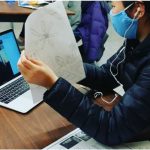
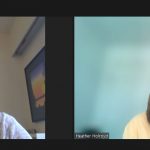
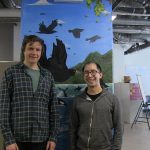

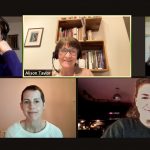
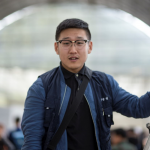
A
November 26, 2018 — 11:13 pm
Love Dr.Mauro